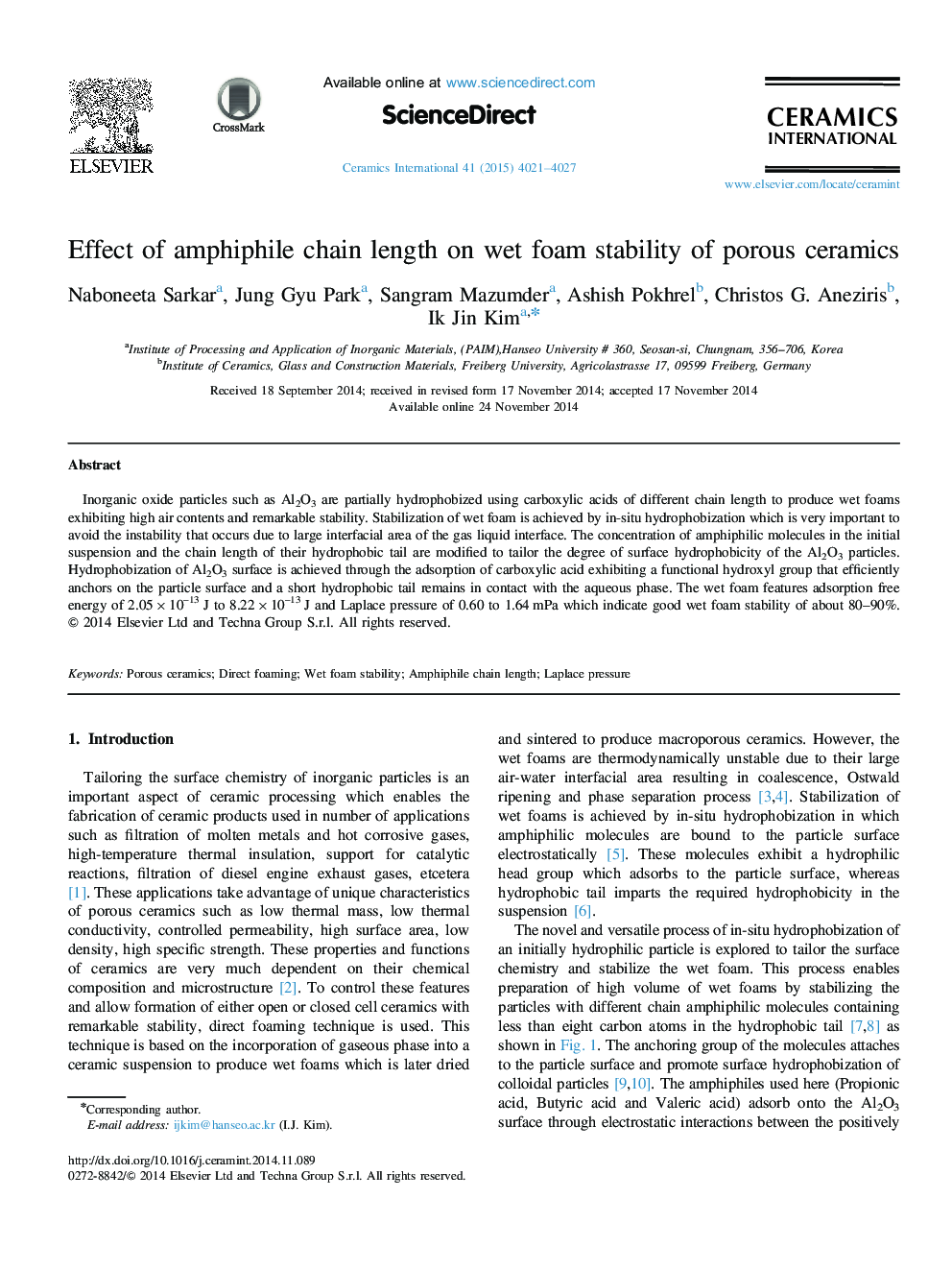| Article ID | Journal | Published Year | Pages | File Type |
|---|---|---|---|---|
| 10624801 | Ceramics International | 2015 | 7 Pages |
Abstract
Inorganic oxide particles such as Al2O3 are partially hydrophobized using carboxylic acids of different chain length to produce wet foams exhibiting high air contents and remarkable stability. Stabilization of wet foam is achieved by in-situ hydrophobization which is very important to avoid the instability that occurs due to large interfacial area of the gas liquid interface. The concentration of amphiphilic molecules in the initial suspension and the chain length of their hydrophobic tail are modified to tailor the degree of surface hydrophobicity of the Al2O3 particles. Hydrophobization of Al2O3 surface is achieved through the adsorption of carboxylic acid exhibiting a functional hydroxyl group that efficiently anchors on the particle surface and a short hydrophobic tail remains in contact with the aqueous phase. The wet foam features adsorption free energy of 2.05Ã10-13Â J to 8.22Ã10-13Â J and Laplace pressure of 0.60 to 1.64Â mPa which indicate good wet foam stability of about 80-90%.
Related Topics
Physical Sciences and Engineering
Materials Science
Ceramics and Composites
Authors
Naboneeta Sarkar, Jung Gyu Park, Sangram Mazumder, Ashish Pokhrel, Christos G. Aneziris, Ik Jin Kim,
